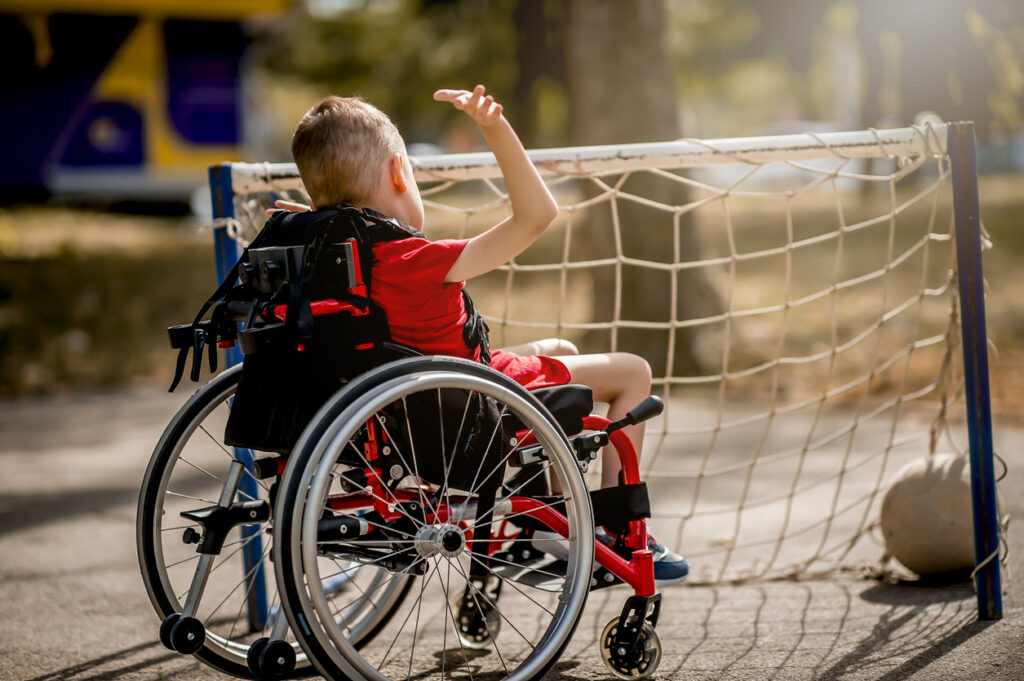Finding a supportive school has made all the difference for Angie and her son Liam, who lives with an extremely rare disability.
Liam was born 10 years ago in Canberra before moving to the United States; he was born with multiple organ malformations and received life-saving surgery at a very young age. A few years later, Liam and his family returned to New South Wales.
Coming back to Australia after so many years overseas was challenging. Angie said finding a place to live and navigating the medical, disability, and school systems took time and energy. She was determined that Liam would attend the same school as his sister, to help make things easier for the family, but she struggled to find one that would offer the right services and supports for him.
“The system doesn’t really know how to deal with someone like Liam because he doesn’t tick a box. That’s the problem with any undiagnosed child – they don’t fit easily in a box” Angie said.
But before long, she found a school that was “willing to go above and beyond for us”, despite having never met a student like Liam before. “The school assisted us in securing funding to employ an integration aide.”
Attending school wasn’t without its difficulties though, as Angie explained.
“The system isn’t set up for children that just don’t fit what it traditionally sees as the norm: the sporting trips, the excursions, the incursions, even the language that gets used within schools,” she said.
But the school’s staff, and Angie, were determined to help Liam thrive. It took extensive collaboration and understanding, but Angie feels that in the short time that Liam was a student at the school, it came along in leaps and bounds.
The family “worked really closely with the principal”, providing advice on what would make school life a little easier for Liam. The school even reconfigured the sick bay shower room, including adding an electronic change table, to make it a fully accessible space for Liam or any other student who may need such equipment and space.
The school “made it as easy as it possibly could”, Angie said. They were battling a system that “doesn’t allow for them to always implement changes quickly”, she added, but she is quick to praise the school for listening to her concerns and acting on them.
Being a military family, they soon moved again, to Victoria, meaning Liam had to change schools. It was the beginning of 2020, and the world was very quickly upended by the arrival of the COVID-19 pandemic. Just six weeks after moving to Victoria, the family, along with the rest of the state, was plunged into lockdown.
Fortunately, they had done some research already and found a small school that they knew their children would thrive in together. And again, the school rose to the occasion, with staff going the extra mile to provide Liam with the learning materials he needed in a format that worked for him. Once restrictions ended, Liam’s assistant principal contacted his old school for recommendations on how best to support him. Angie advocated strongly for her son’s needs, and throughout it all, school staff on both sides of the border were by her side.
Angie said she also appreciates the help she has received from ACD, which she calls her “brains trust”. ACD has helped Angie by providing advice and support around advocating for her child. With ACD’s assistance, Angie has learned more about the school system and how to communicate with staff about Liam’s needs, especially with changes to policies. She also often passes on to the school the resources that ACD creates.
Now, Angie is working with the school to continue its accessibility upgrades: things like adding ramps and setting up classrooms in a wheelchair-friendly way. The school has even created an exceptional sensory room for students to use and is working with parents and advisors on the design of a sensory garden.
Angie said she gets goosebumps when she reflects on how far she, Liam, and the school have come together. She said the school now feels more inclusive, welcoming, and friendly, and the staff are proud of how accessible it has become.
“They’re doing it because they want their school to be the very best for every single student that comes to it,” she said.
“I’ve always said that our legacy as a family, for every school or every community that we live in, is that we leave it a better place. The legacy is that when Liam does move on, that school is a better place for any other child, whether they have a disability or not because every child is going to benefit from a fully accessible campus.”
As for Liam, Angie said he’s loving his new school.
“He’s happy at school. He’s got friends for the first time ever… it’s like they’ve found their little tribe.”
*Integration aides are formally known as Education Support Officers
Read more Real stories
